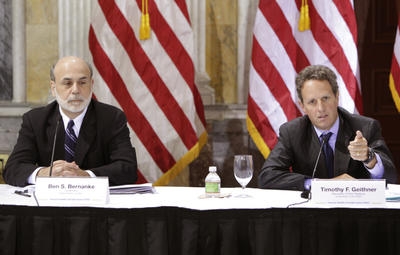An outcome on currencies is important in Seoul if we are to avoid unilateral steps by the United States in ‘retaliation’ and escalation to a currency war or even a trade war. Beggar-thy-neighbour policies through competitive exchange rate devaluations would present real risks for global recovery.
Peter Drysdale and Soogil Young remind us in this week’s feature essay that exchange rates are only one component of rebalancing the global economy. This has been the subject of much discussion on this forum and elsewhere.
It will be important in Seoul to make progress and commitments on other rebalancing measures to take the pressure, and the entire focus, off the exchange rates. Drysdale and Young remind us that a ‘vital component of policies for rebalancing growth is structural reforms that strengthen domestic demand and improve productivity’.
They recognise the need for more flexible exchange rates, as past experience ‘shows that major Asian economies have a strong national interest in deploying increasingly flexible exchange rate adjustment’, but the ‘structure and timing…..will depend on each country’s economic circumstances and institutions and is correctly a matter for national policy decision’. There is no doubt that increased flexibility of Asian exchange rates needs to be on the table.
But Drysdale and Young warn that large one-off exchange rate changes would be disruptive to global markets and heighten risk of instability. And exchange rate adjustments should not, and sensibly cannot, carry too much of the rebalancing and adjustment burden. Global imbalances are due to internal imbalances in major economies and reforms have to be prosecuted domestically.
Drysdale and Young’s lead this week is the outgrowth of a project initiated within the KIA group in the G20 (Korea, Indonesia and Australia) and involving wide input from around the Asian region. The study encompasses a range of priorities for Asian G20 members (Japan, Korea, China, India, Indonesia and Australia), not only the exchange rate issue. It details the constructive agenda that Asian G20 members can bring to Seoul around their priorities in global system stability and sustainable development.
‘The most important outcome of the G20’, they conclude, ‘will be the reassurance of strong commitment from G20 leaders to macro-economic recovery strategies and to the structural changes needed for balanced growth and sustained development in the long term’.
If G20 leaders start with that outcome in mind, it will help them find a solution and a way forward on the exchange rate issue that avoids a world of uncertainty that nobody wants.

